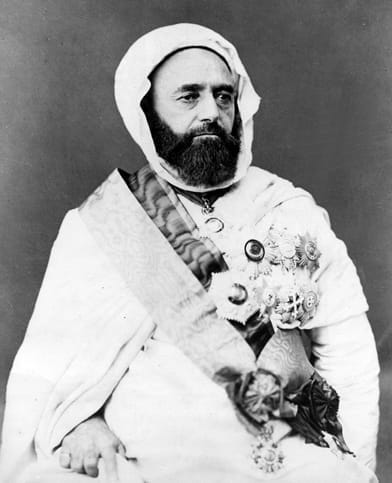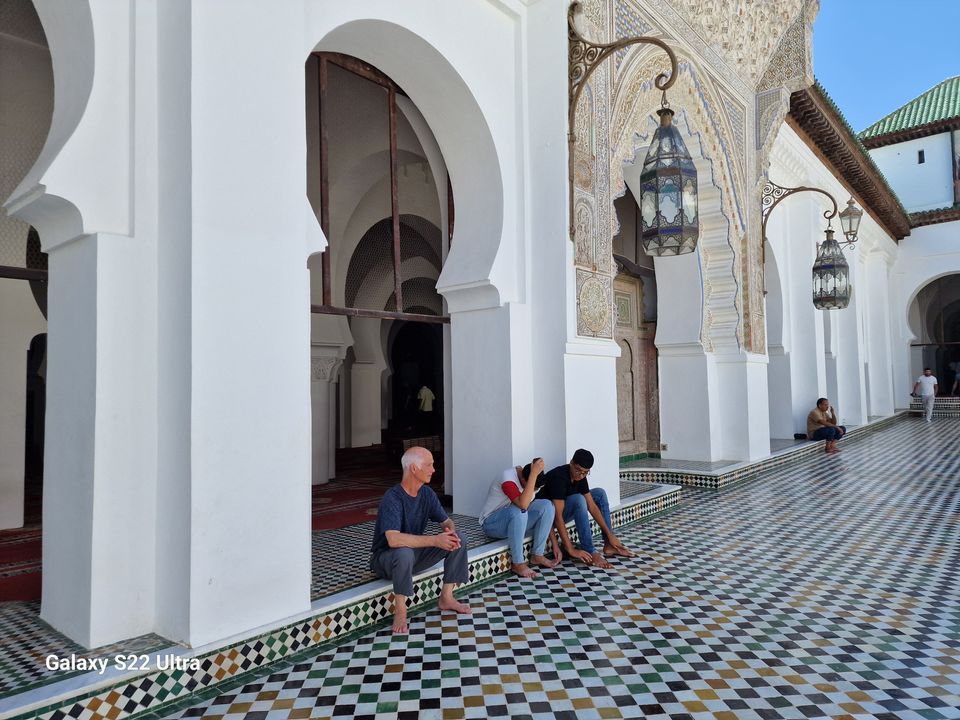#10 The Pedagogy of Rumi with Sheikh Kabir Helminski

In this podcast, Shaykh Kabir Helminski explores a number of topics and concepts relevant to every spiritual seeker, commenting on what it means to ascend in consciousness and how the Sufi tradition, particularly the heart of the Mevlevi order, serves to do that. Tradition, as he says, serves as a template and means of transmission through non-dual gestures of the sacred: ceremony, manners, service and worship. Heartfulness, a key differentiator of the path, begins with the understanding that within the human being is the possibility of opening a window to the Divine....
The Sufi walking into the realm of the Sacred is a return back to our essence; to be, and act, from a place of unconditional love. Shaykh Kabir Helminski touches on the possibility that every soul has a uniquely subjective vantage point within the non-dual unified reality. He provides insightful remarks on our human experience; the different levels of human consciousness, our partaking in a process of conditioning, deconditioning and reconditioning; and, our role as reflectors of the Divine Reality, as modeled in the mirroring of Shams-i Tabrīzī and Jalāluddīn Rumi. The transformative power of Rumi’s teachings, the pedagogy of love, becomes magnified through sohbets, arts, language, and music. This conversation, centered in the heart of its tradition, greets us with love.
Speakers: Saqib, Shaikh Kabir
Saqib: Welcome, Shaikh Kabir, wonderful to have you. So, a couple of things I wanted to discuss today. The first, is conditioning; cultural and religious. Are we as human beings confined to it? Or is there the possibility of liberation from it? And if so, how does that happen?
Shaikh Kabir: Well, we would not be human beings without a certain amount of conditioning. The question is, is the conditioning a positive or negative factor? Also, how aware are we that we are conditioned? So, any spiritual practice that raises our level of consciousness, allowing us to witness ourselves, our thoughts, our emotions, our behaviours, gives us a vantage point on our conditioning. And through that, we can engage in a process of, first, deconditioning. Deconditioning means doing what we can to reduce the negative forms of conditioning that do harm in our relationships that cause fear, cause worry, and all other forms of negativity. So, deconditioning first, and then reconditioning. Reconditioning is to replace all those negative factors by putting in place positive behaviours, positive habits, and positive responses, like, shall we say, generosity, gratitude, forgiveness, and patience. But there is also the possibility of unconditional love. Unconditional love is what will finally free the human being from these, sometimes positive, sometimes negative, factors of conditioning. In our essence, though, we are unconditioned. We are an eternal spirit participating in the Infinite Divine Being of Existence. And it is vitally important for the human being to have some experience of that. And from the experience of that these other levels of conditioning are transformed. We are then freed from the negative aspects of our conditioning and will then begin to manifest those latent attributes of the Divine Reality that are beautiful, loving, and intelligent.
Saqib: Wonderful. So, just to be clear, as human beings, are we limited to a subjective experience, or is there a possibility of objective perception and understanding of reality?
Shaikh Kabir: Well, just to define our terms. If by subjective you mean distorted or limited by a uniquely personal point of view, I would say we should be able to transcend that kind of subjectivity. If by subjectivity you mean a unique viewpoint within this non-dual unified reality, a perspective of an “I” that is the viewer, I believe we will continue to have that kind of subjective experience. But the important question is, is that “I” veiled by negativity, veiled by prejudice, veiled by selfishness, veiled by trauma, etc, etc. So, every soul has the possibility of a uniquely subjective, and yet, pure vantage point. I am reminded of what Ibn Arabi, when essentially asked about this question, said:
“My journey was entirely within myself. But when I came as close as a human being can come to the presence of my Rabb (Lord), I saw that I was nothing but servanthood without a trace of sovereignty.”
So, by servanthood, here, he means every value in the human being, every capacity, every resource, every strength, is lent to us, reflected to us, by the primary agency, That Divine Sovereign, and yet we as unique individual reflections of the Divine Being. According to how much we can polish the mirror of our own heart we can be in that subjective, relatively objective, that vantage point, which is undistorted by the unrealities of prejudice, of selfishness, of trauma, of unnecessary fear, and so forth. Does that make sense?
Saqib: Yes, absolutely. And just to be clear, we are saying, this is not simply the perspective of somebody who’s morally good in character, and who’s not selfish and not greedy etc. But there is an element of Divine Immanence almost, that becomes the eyes by which he or she sees, and so forth, that there is some higher order of perception in this non-dual reality, which allows them to witness the cosmos, or they are far the horizons out with the within. Is that correct?
Shaikh Kabir: Yes, exactly. There’s no way to talk about this whole subject fairly unless we acknowledge that human beings are at different levels of consciousness. And at one level of consciousness, we are imprisoned within our conditioning, we only know, and we think, we are our conditioning. At another level of reality, we begin to witness our conditioning, even if we can’t change it or do much about it. At another level, we have not only witnessed it, but we have in a sense, modelled our conditioning in a positive way. And more and more, as the human consciousness ascends through the levels of consciousness, one begins to be to reflect more and more of a greater intelligence of divine intelligence and presence. And at which point, one’s very individuality seems almost insignificant. And there is a degree of freedom from the self, even while the self is there as a tool, as a manifestation.
Saqib: Currently, there’s a lot of development of mindfulness in western consciousness mainly through Jon Kabat-Zinn and various other sorts of teachings that have developed, especially in the secular world for his stress reduction clinic. Is that the be all and end all of this higher vantage point, or are there further steps and journeys to be made after mindfulness, from the perspective of the Path of Sufism?
Shaikh Kabir: Mindfulness is a useful tool being appreciated more and more within our society on the level of relatively mass consciousness. But how do people understand mindfulness? Some people understand it as just coming into the present moment and a sort of state of being present, meaning our attention is here in the present, we’re not daydreaming, we’re not living in our memories, and yeah, we’re not living in our heads. And so, this is a useful beginning. It is a step toward becoming free of conditioning. And being able to be mindful of our what had previously been unconscious behaviours, unconscious habits of thinking and feeling.
In our teaching, we talk about heartfulness, as a step beyond mindfulness. And heartfulness is when we begin to relate to others and to existence itself. Through this faculty, metaphorically called the ‘heart’, because it’s not the physical heart primarily, but the heart as an instrument for qualitative perception, the heart that knows value. It’s the heart that appreciates relationship with other human beings, other living things, and ultimately with the divine order. So, to awaken heart perception, and to live more and more through the heart, we go far beyond the idea of just being attentive in the present moment. We begin to awaken innate aspects of our humaneness, that are so much deeper, so much richer than merely paying attention in the present moment. It’s much more than just an act of attention. But that act of attention, which is mindfulness, is an essential step. It’s not the only way, but one certainly complementary way to move into that state of heartfulness if we don’t restrict ourselves too narrowly, to the concept of mindfulness. Because while it’s good to move from our daydreams and illusions into the reality of the present moment there are further steps which take us up into a timeless present moment that is vast and beyond time. And beyond mere circumstances and physical reality. So, while mindfulness training is a useful psychological tool it still but keeps us confined within our own individual identity. And does not necessarily bring us into the greater field of identity, and of relationships, which the heart is capable of.
Saqib: So, speaking of relationships, I know in the tradition that you embody and teach, Rumi and Shams had a wonderful dialogue and relationship of mirroring that went beyond the normal teaching relationship of mentor and student. Could you say something about this pedagogy of mirroring? And what happens during this nondidactic mode of teaching, which I believed is called sohbet (spiritual conversation) in the tradition.
Shaikh Kabir: Yes. Rumi and Shams were complimentary. They were not equal in terms of their attributes and qualities. Shams was, in some ways, the more mature one, the one who initiated this transformation in Rumi, but Shams needed Rumi, as much as Rumi needed Shams. Shams said I was like a stagnant pool until I met Rumi and he got me flowing. So, what was modelled in this relationship is a mirroring of two beings who are equalized by love. They’re humbled by love. So, there is no superiority, no inferiority, in this relationship. This very friendship could just as well be called spiritual love, it cannot be described as nor understood through, nor is it erotic or romantic love. It’s the kind of love we all essentially are, in our essence. And so, it is still, potentially, a beautiful model of spiritual relationship, if we human beings could approach each other with that humility, with that non-defensive openness. And if we also open to the dimension of the heart where our each and every word is spoken in presence of the Divine Presence then we would each be lifted up and be mirroring back to each other the Qualities of the Infinite. Mirroring the ‘Qualities of the Infinite’ starts to sound a bit abstract, and it’s not an abstract or impersonal state. It’s a very beautiful, even intoxicating state. And it is, in a sense, the purpose of life. And human beings have the capacity to support and sustain each other in that realization of the generosity of the Divine, the nurturance of the Divine, that the Divine can actually come through human beings, and for human beings. So, this relationship itself is a portal to spiritual reality, to a unity, in which friend and friend still exist. They didn’t merge into a morphic oneness. In some ways, Shams was power, and Rumi was receptivity and beauty. Complimentary, yet different, and an utterly transformative experience. Obviously for Rumi, but no doubt also for Shams.
Saqib: That’s beautiful. So, I think we’ve really touched on some really important points, there’s mindfulness, human conditioning, this journey to a higher subjective perception, the ability to enter this heart space, and be in a relationship, which is more than just a conditioned response to somebody, but there’s more depth and a level of mirroring. And from what I’ve read, the Mevlevi tradition is a very comprehensive and sophisticated educational program, which historically, has consisted of the arts, language, music, through to learning how to clean and cook. So how would some of these ideas translate for you as a teacher in terms of pedagogy, in terms of your approach with your students?
Shaikh Kabir: It’s founded on metaphysical principles, a metaphysical understanding about the nature of reality, and the position of the human being within this reality. And the experience as well, not just the conceptual framework, the experience of participating in this greater being, so the pedagogy will naturally develop out of that so that it’s not a prescribed system as much as a way of life. And we are grateful for tradition, and all the examples it provides in terms of ceremony, manners, service, and worship. There are so many different aspects, but all of these aspects are serving one purpose. And it’s necessary to have an idea of what the human being is and what the human being can become. And that becomes the criteria against which everything else is measured. Every action, every word, is measured against the fulfilment of this purpose. At the same time, we probably couldn’t conceive of much of this if we didn’t have historical examples of how this truth was lived. That’s something that tradition can offer. When you have a tradition of enlightenment, a tradition of, we would rather call it, intimacy with God, when you have such a tradition, it’s replete with examples of ways of being, ways of speaking. And you can help people towards this reality. Without even, shall we say, a deep comprehensive training in metaphysics. It’s just through behaviours, through phrases that we repeat, for instance, Mevlevis will often greet each other, with the first to start the greeting saying, “Aşk olsun!” (“let there be love!”). And then the hearing heart responds, “Olson, Jemal Olson!” (“yes! let it be a beautiful love!”) So, people are always reminding each other of the objective.
Yeah, and things as simple as bowing and touching the heart. These gestures are the gestures of non-duality, the gestures of the sacred. So, you can be a Sufi, and you can walk this path, travel this road, without a lot of intellectual baggage. And without, you know, one feeling that I need to have a PhD in Sufism in order to effectively travel on this way. And we should not confuse scholarly knowledge as beautiful as that may be. And we recognize that we have a beautiful tradition, intellectual heritage, and a cultural heritage that is exquisitely beautiful. But the everyday life of the dervish and how the dervish serves a cup of tea could be worth a PhD, or more.
Saqib: So, I know in having spent time with yourself that the teacher is often called Dede (Grandfather). And so, what is the role of the teacher in this educational model?
Would you say it’s a student-centred pedagogy, and the teacher merely a facilitator? What’s the dynamic in your teaching?
Shaikh Kabir: We learn from each other. Surely, speaking from experience, the so-called teacher, functionally, that would be me. In some cases, I learn from the devotion, the discipline, and the sincerity of our students. I may be inspired by that. And I may be reminded of my responsibility to maintain or attain a certain degree of what we’re hoping to attain. At the same time, there is a saying in our tradition, and it goes something like this, “when the seeker visits a person of knowledge, they learn more from the adab (metaphysical being and character levels of spiritual courtesy and manners) than from their knowledge.” So, this reminds us that the knowledge as important as it is, is not as important as being and if there is any kind of hierarchy at all, it is a hierarchy of being. But the hierarchy of being is a hierarchy in which, the attainment of being, to speak of it mathematically, is in inverse proportion to our egoism. Okay, so the more the human being, can be freed of their personal egoism, their concepts of self, their sense of privilege, and entitlement and such things, the more human being is freed of that, the higher they are in a sense of this in this hierarchy of being meaning that hierarchy of being is a hierarchy of one’s capacity for love. And that’s what I discovered myself, after having met masters of will, masters of knowledge, masters of power, but when I met a master of love, everything else sort of fell to the background.
Saqib: So just building on that tradition of great learning, in the Mevlevi tradition, you have the great works of Rumi. In the West, Rumi is being read, digested, reflected upon in the social media and with the development of all sorts of translations of Rumi. So, a couple of questions come, one, why now? What is Rumi’s message for us? What’s a 13th-century Islamic scholar offering to people who might not even have any religious baggage but are finding a message in his works. And how accurate is that message? Has it been distorted by popular translations like Coleman Barks who chose instead of traditional spiritual vocabulary to go for a more sort of free verse style of translation? So, what’s going on there? And Elif Shafak’s amazing and wonderful book, which lots of people have either heard of or read, The Forty Rules of Love, where she manages to intertwine personalities and events from the 13th century into a parallel story that is taking place here and now in a very meaningful and organic way. So, what’s going on here, with these lots of translations.
Shaikh Kabir: Human needs do not change much over time, our essential needs, the truth and nature of reality doesn’t change. And so far as Rumi speaks to us truly about the nature of reality and the human beings need for the Divine, what he offers is the most essential knowledge, and beauty for the human being. And most of it is timeless. When I say ‘most’, what I mean is that there may be in Rumi’s writings allusions and references that don’t have a lot of meaning for people in, let’s say, Western culture at this time. Coleman Barks may have conveniently left out some of that material. I think it was more of an aesthetic decision than an attempt to hide the Islamic context and origin of Rumi’s message. In fact, in one of the most frequently quoted poems translated by Coleman is “Love Dogs”.
One night a man was crying,
“Allah, Allah!”
His lips grew sweet with the praising,
until a cynic said,
“So! I have heard you
calling out, but have you ever
gotten any response?”
The man had no answer for that.
He quit praying and fell into a confused sleep.
He dreamed he saw Khidr, the guide of souls,
in a thick, green foliage,
“Why did you stop praising?”
“Because I’ve never heard anything back.”
“This longing you express
is the return message.”
The grief you cry out from
draws you toward union.
Your pure sadness that wants help
is the secret cup.
Listen to the moan of a dog for its master.
That whining is the connection.
There are love dogs no one knows the names of.
Give your life to be one of them.
Well, this is one of the most quoted passages from Coleman. But he doesn’t hide that the man is calling Allah, he doesn’t change it to ‘God’, or ‘Source’, you know. I will defend Coleman. I would say that his, if he has any sense of translation, his sins are of omission. In other words, he’s left certain things out. But I don’t believe he’s left them out to try to cut Rumi from his Islamic tradition because he often does mention Muhammad. I believe Rumi will be happy with anybody who appreciates his message, even in simple ways. And that he would not demand that, that he be served his meal, you know, with some kind of Islamic labelling on it. Food is food. True faith is true faith. And he understood that entirely.
I will also quibble with those who try to put Rumi into the box of their concept of Islamic orthodoxy. Because he doesn’t fit in that box either. He is a true Muslim, a true lover of the Prophet Muhammad, peace be upon him. But he also demonstrated that one can be that kind of Muslim and live an extraordinarily creative and liberated life that is universally meaningful to people. And that’s why he can so easily be loved by people of all traditions. And people can read even the passages of Rumi’s in which there is clearly Islamic content, and a context, and it doesn’t bother people because they sense the truth that is there. And as for translations, there are some good translations. But Coleman’s, they’re not exactly translations. There are versions where often he leaves out a lot of material and conveniently translates, where he’s given himself some license to make his material more appealing.
In our translations, we worked under different rules, and different stringencies. We translate, every line, generally, most of the time, staying close to the original meaning of the Persian, as much as we understand it. So, that’s partly what makes the nature of our translations and comments versions different, but I’ll still will defend Coleman. What I will critique are those what I call ‘Instagram Rumi’, not all, but a lot of ‘Instagram Rumi’ which is made up of often watered-down trivial one-liners. Somebody will say something like, “don’t look outside yourself, find everything inside yourself.” Well, for me, he never said anything like that, he certainly said a lot more than that. Because he certainly doesn’t believe that what is to be found, is found in ‘me’. It is not that I don’t need tradition, I don’t need revelation. It’s not that at all. It’s that within the human being is a possibility of opening a window to the Divine. That’s what’s important. It’s not, shall we say, a process of mere introspection, if anything, he asks us again and again and again to destroy the prison of our own beliefs and concepts, and to get beyond the content of our own of our own psyches, in order to experience the Divine. So, some of Rumi that we find in social media is distorted. It’s incomplete. And it’s sometimes even misleading when it merely affirms the prejudices of our own individualistic society, which dismisses tradition, which dismisses the hierarchy of being, and which in a sense, even dismisses the Divine.
Saqib: Shaikh, courageous. My final question is about how Rumi should be read. I know in in having attended your circles, an essential part of that process of reading is the emphasis and importance placed upon reflection and of speaking from the heart. Could you say something about that?
Shaikh Kabir: When there are a number of souls participating in the reading of Rumi something certainly is magnified, something miraculous happens. But it’s also important that there be someone in the circle who has enough of a sense of the metaphysical universe Rumi inhabited. Because you can’t let Rumi become just a cipher for anyone’s subjective imagination. One needs to consider the intent. What does Rumi want us to know? What is he trying to communicate? And it’s pretty clear, but it can be distorted, and can be missed. So, having somebody who has matured in Rumi’s teachings would be a great advantage to keep people from getting possibly lost in their own subjective interpretations. But yes, a reading group is a great idea, and much better than reading it alone, and then only once.
Saqib: So, reflections as opposed to say critical analysis? Or do your students engage in a higher cognitive, supra-rational intellect in reading and reflecting on Rumi? I’m not sure how applicable those are in reading Rumi.
Shaikh Kabir: I’ve heard lectures about Rumi that spend more time on bibliographic items and externalities than on Rumi’s message. I’ve heard lectures at major conferences where a paper was given on the 12 different places where Shams might have been buried. Okay, so, people get lost in superficialities, things that have nothing to do with the message, with the truth of Rumi. So, one can approach it too much from merely the level of intellect and superficial surface analysis or one can try let one’s heart be touched by the message. And so, again, the perception of the heart, heartfulness, is necessary here. And it shouldn’t be too hard because that’s a lot of what Rumi is saying anyway, and he says it in so many ways and sometimes in ways so simple a child could. So, yeah, Rumi remains to be read by the heart and not just as information to be harvested.
Saqib: Shaikh Kabir, thank you so much. It’s been an absolute honour and a pleasure to be speaking with you today.
Shaikh Kabir: Thank you for inviting me Saqib, I wish you well.
Saqib: Thank you




